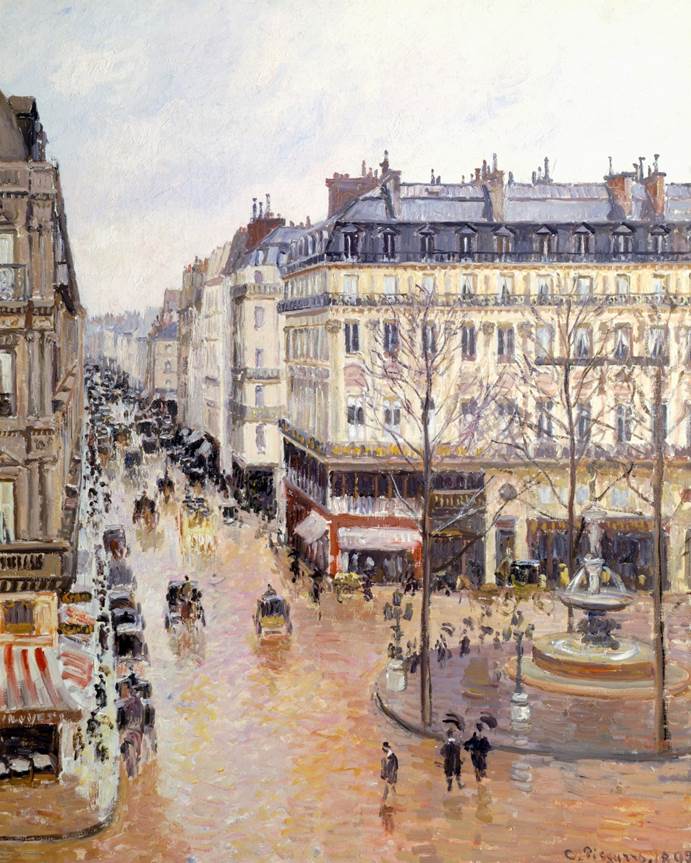One of the longest-running court cases in the United States about art looted by the Nazis has been decided in favor of the current possessor, the Thyssen-Bornemisza Museum in Madrid, an instrumentality of the Kingdom of Spain. The U.S. District Court in Los Angeles ruled on April 30, 2019 against the heirs of Lilly Cassirer, a German Jew whom the Nazis targeted in 1939 for a forced sale of Rue Saint–Honoré, après-midi, effect de pluie (1892). The ruling is the second time that the museum has prevailed in the District Court as the owner of the painting under Spanish law, now on the grounds the museum did not know of the painting’s looting history when it acquired the work and that it held the work publicly for long enough to become its owner even though it had been stolen. The ruling, while favorable to the museum in this case, confirms important principles about the inability of successive possessors to acquire good title to artworks stolen by the Nazis, and the importance of diligence and pursuing questions raised by red flags in the chain of title. Notable as well was the Court’s pointed criticism of Spain for failing to adhere to the spirit of the Washington Principles on Nazi-Confiscated Art, and Spain’s failure to “comply with its moral commitments.”
Thyssen-Bornemisza Prevails Over Cassirer Heirs' Claim to Pissarro Taken by Nazis Despite Acts “Inconsistent with the Washington Principles”
Topics: Walter Feilchenfeldt, Third Reich, Terezin Declaration, Gestapo, Lilly Cassirer, Claude Cassirer, Jacques Goudstikker, Nazi-looted art, Czechoslovakia, Spain, Washington Principles, Baron Hans-Heinrich Thyssen- Bornemisza, A Tragic Fate, Law and Ethics in the Battle Over Nazi-Looted Art, Reichskammer der bildenden Künste, flight taxes, Rue Saint–Honoré, Julius Cassirer, Paul Durand-Ruel, Ludwigstrasse, Dr. Cassirer and Co. Kabelwerke, Jakob Scheidwimmer, Sydney Schoenberg, Hahn Gallery, Thyssen-Bornemisza Museum, Military Government Law No. 59, Reich Chamber of the Visual Arts, Ari Walter Kampf, Eugen Kampf, Knoedler & Co. Gallery, encubridor
Court of Appeals Upholds Claims to Renowned Guelph Treasure Sold Under Duress to Nazi Agents
(WASHINGTON-July 10, 2018) The U.S. Court of Appeals for the D.C. Circuit has affirmed the right of the heirs to the so-called Guelph Treasure (known in German as the Welfenschatz) to seek restitution in U.S. courts for the value of the treasured art collection. The appellate court rejected Defendants’ arguments that U.S. courts lack jurisdiction, or that Germany’s treatment of its Jews in the 1930s should be immune from judicial scrutiny. While the Federal Republic of Germany itself was dismissed as a defendant, the actual possessor and key party in interest (the Stiftung Preussischer Kulturbesitz, or SPK) must now prove that a 1935 transfer of the collection by a consortium of Jewish art dealers to Hermann Goering’s minions was a legitimate transaction if they are to retain the collection.
Topics: Gestapo, Z.M. Hackenbroch, Prussia, Germany, Nazi-looted art, Foreign Sovereign Immunities Act, Markus Stoetzel, Mel Urbach, SPK, Hermann Goering, FSIA, NS Raubkunst, Sullivan & Worcester LLP, J.S. Goldschmidt, Adolf Hitler, Nicholas M. O'Donnell, Welfenschatz, I. Rosenbaum, D.C. Circuit, Consortium, Genocide Convention, Reichstag, flight taxes, Baltimore Sun, Luftwaffe




